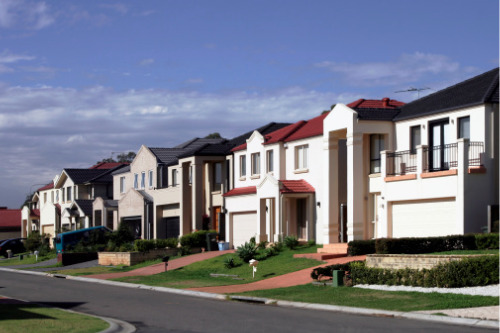Top 100 broker on rates and the property boom

Ultra-low rates have been fuelling the fastest home-price growth in 32 years – but can interest rates keep falling? The answer is no, according to one Top 100 broker.
“Economists all agree that the next move will be up,” Mortgage Choice broker James Algar told news.com.au. “The RBA have been very clear they do not plan to hike rates until they see inflation, which hinges on wages growth, which we’re not seeing right now. Even if the RBA wanted to, I don’t think they’re likely to, purely because of the impacts on the housing market more than anything.”
Still, Algar encouraged prospective homebuyers to lock in fixed rates now to avoid the shock of future rate hikes.
“Naturally, any potential increase in rates will have a flow-on effect to people on everyday spending patterns,” he said. “Right now any mortgage broker you speak to will be encouraging clients to think long and hard about the benefits of some kind of fixed rate approach to soften the impact of any potential rate increases in the medium term. I think it’s smart to do that.”
Algar said that Mortgage Choice was writing “a substantial number” of fixed-rate loans, which give borrowers the certainty that their mortgage repayments will stay the same for the next two to five years.
“Fixed rates give people the chance to really protect themselves until such time, hopefully, they’ve seen some wages growth and can cope with the higher cost of their home loan,” he told news.com.au.
Aussie Home Loans chief executive James Symond said he expected rates to stay low for the time being, with competition between banks and lenders continuing to heat up.
“We certainly have seen some unbelievably low fixed interest rates over the last three and six months, and perhaps we’ll see those rates go up a little bit over the next three or six months, but who knows what will happen further to that,” Symond told news.com.au. “But these are still ultra-low interest rates. Even if they do go up a little bit, they are still extraordinarily competitive and rates which consumers have never seen.
Read next: Homes flying off the market at record speeds
Symond also urged potential home buyers to consider locking in a fixed rate – or a mix of fixed and variable rates for more flexibility.
“They need to keep the horizon in mind, because these low rates won’t stay as low forever – but they will stay low for a very long time,” he said. "The good thing out there right now is that, sure, there’ll be some fixed interest rates that trickle up, but you’ve still got lenders out there who are holding their rate, if not still lowering them a bit as well. So there’s a real opportunity out there for consumers who are informed to seek their advice, to seek their mortgage broker and to get the good oil on who’s offering what out there, because the marketplace has never been more competitive.”
With Australian house prices at record highs and continuing to rise even as the economy recovers from the impacts of the COVID-19 pandemic, CoreLogic head of research Eliza Owen said there was mounting speculation about how and when the red-hot market would cool.
“We can’t predict the future, but there is growing consensus a likely change in the current property environment would be rules around lending,” Owen told news.com.au. “What might trigger a slowdown in the market would be changes to lending standards, probably something that would impact owner-occupiers as well as investors. The Australian Prudential Regulation Authority has made pretty clear they’re not looking to intervene yet because the lending standards they’re looking at haven’t deteriorated.”
However, Owens said she thought the housing market would cool down even without regulatory intervention.
“I think these growth rates are going to slow down. People are going to come against affordability constraints, particularly first-home buyers, and there’s got to be a cap on someone’s willingness to pay, even in an environment where there is relatively little supply. I’d be surprised if the kind of growth rates we saw this month were to continue for the rest of the year.”
 Ryan Smith is currently an executive editor at Key Media, where he started as a journalist in 2013. He has since he worked his way up to managing editor and is now an executive editor. He edits content for several B2B publications across the U.S., Canada, Australia, and New Zealand. He also writes feature content for trade publications for the insurance and mortgage industries.
Ryan Smith is currently an executive editor at Key Media, where he started as a journalist in 2013. He has since he worked his way up to managing editor and is now an executive editor. He edits content for several B2B publications across the U.S., Canada, Australia, and New Zealand. He also writes feature content for trade publications for the insurance and mortgage industries.LinkedIn | Email



